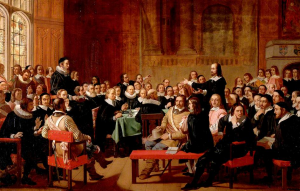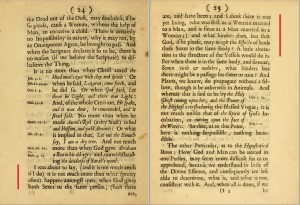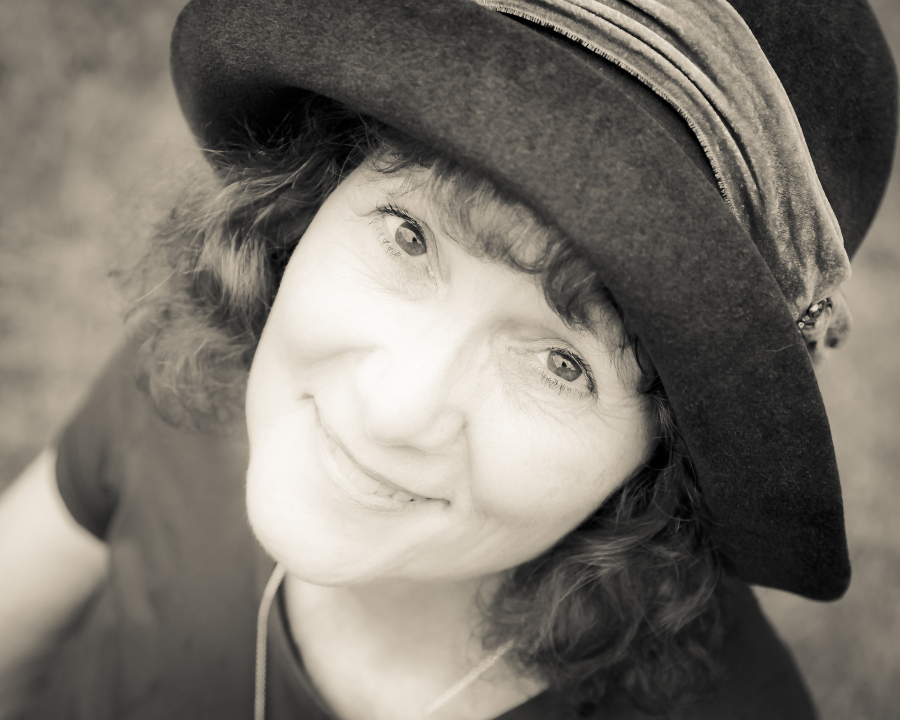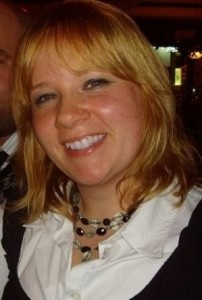 Why some Christians insist on harsh rhetoric, fear mongering, and hopeless political battles is beyond me. If you hate transgender kids so much, then share the Gospel with them. It’s the only weapon you have capable of victory.
Why some Christians insist on harsh rhetoric, fear mongering, and hopeless political battles is beyond me. If you hate transgender kids so much, then share the Gospel with them. It’s the only weapon you have capable of victory.
Where will your justification for hatred be when medicine can change chromosomes? Instead of looking to pop science, why not consider what Scripture has to say about the issue?
In Acts 8:26 is recorded the baptism of the Ethiopian eunuch.
And the angel of the Lord spake unto Philip, saying, Arise, and go toward the south unto the way that goeth down from Jerusalem unto Gaza, which is desert. And he arose and went: and, behold, a man of Ethiopia, an eunuch of great authority under Candace queen of the Ethiopians, who had the charge of all her treasure, and had come to Jerusalem for to worship, Was returning, and sitting in his chariot read Esaias the prophet.
Then the Spirit said unto Philip, Go near, and join thyself to this chariot. And Philip ran thither to him, and heard him read the prophet Esaias, and said, Understandest thou what thou readest? And he said, How can I, except some man should guide me? And he desired Philip that he would come up and sit with him. The place of the scripture which he read was this, He was led as a sheep to the slaughter; and like a lamb dumb before his shearer, so opened he not his mouth:
In his humiliation his judgment was taken away: and who shall declare his generation? for his life is taken from the earth. And the eunuch answered Philip, and said, I pray thee, of whom speaketh the prophet this? of himself, or of some other man? Then Philip opened his mouth, and began at the same scripture, and preached unto him Jesus.
And as they went on their way, they came unto a certain water: and the eunuch said, See, here is water; what doth hinder me to be baptized? And Philip said, If thou believest with all thine heart, thou mayest. And he answered and said, I believe that Jesus Christ is the Son of God. And he commanded the chariot to stand still: and they went down both into the water, both Philip and the eunuch; and he baptized him. And when they were come up out of the water, the Spirit of the Lord caught away Philip, that the eunuch saw him no more: and he went on his way rejoicing.”
No harsh rhetoric there. No Pharisaical man-made rules. No chromosomes. Philip didn’t require anything extra before baptism.
Have you considered that Philip didn’t heal the eunuch? And yet, earlier in chapter 8, it says that
Acts 8:6,7: “And the people with one accord gave heed unto those things which Philip spake, hearing and seeing the miracles which he did. For unclean spirits, crying with loud voice, came out of many that were possessed with them: and many taken with palsies, and that were lame, were healed.”
Perhaps the eunuch’s sexual difference was something that didn’t need healing? At the very least, we have God’s promise that remaining a eunuch was for his good. (Romans 8:28)
Matthew 19:12 says “For there are some eunuchs, which were so born from their mother’s womb: and there are some eunuchs, which were made eunuchs of men: and there be eunuchs, which have made themselves eunuchs for the kingdom of heaven’s sake. He that is able to receive it, let him receive it.”
Jesus doesn’t condemn any of these people, but what the Bible does make clear is that eunuchs were not the same as males. Sexual status can be something other than male or female, and it can change.
I’m not saying that transgender kids are eunuchs. What I’m trying to point out is how the Gospel treats someone who is sexually different than your standard male or female, boy or girl. And that the Bible acknowledges that at least some sexual variations away from typical male or female are “from their mother’s womb.”
If you think that gender is entirely learned, I’d love to hear your Biblical argument for it. Might I suggest that such a view stems rather from feminism or our culture’s distorted view of the theories of Dr. John Money?
For years physicians used surgery and hormones to turn intersex babies into girls on the theory that, with the proper reinforcement from parents, the child would develop a feminine gender identity. Here’s a case typical of the sorts of failures that occurred.

As an experiment, they even tried to raise a boy as a girl. As an infant David Reimer had lost his penis in a circumcision accident. Dr. John Money (pictured below) recommended castration and raising the child as a girl. If gender was learned, then David should be happy as Brenda. Here’s one telling of the sad story:

Isaiah 56:1-8 says
“Thus saith the LORD, Keep ye judgment, and do justice: for my salvation is near to come, and my righteousness to be revealed.
Blessed is the man that doeth this, and the son of man that layeth hold on it; that keepeth the sabbath from polluting it, and keepeth his hand from doing any evil.
Neither let the son of the stranger, that hath joined himself to the LORD, speak, saying, The LORD hath utterly separated me from his people: neither let the eunuch say, Behold, I am a dry tree.
For thus saith the LORD unto the eunuchs that keep my sabbaths, and choose the things that please me, and take hold of my covenant;
Even unto them will I give in mine house and within my walls a place and a name better than of sons and of daughters: I will give them an everlasting name, that shall not be cut off.
Also the sons of the stranger, that join themselves to the LORD, to serve him, and to love the name of the LORD, to be his servants, every one that keepeth the sabbath from polluting it, and taketh hold of my covenant;
Even them will I bring to my holy mountain, and make them joyful in my house of prayer: their burnt offerings and their sacrifices shall be accepted upon mine altar; for mine house shall be called an house of prayer for all people.
The Lord GOD which gathereth the outcasts of Israel saith, Yet will I gather others to him, beside those that are gathered unto him.”
Let me repeat part of that quote, in case you missed it.
“For thus saith the LORD unto the eunuchs that keep my sabbaths, and choose the things that please me, and take hold of my covenant;
Even unto them will I give in mine house and within my walls a place and a name better than of sons and of daughters: I will give them an everlasting name, that shall not be cut off.”
God has promised “a name better than of sons and daughters” for covenant-keeping eunuchs. He could have said as good as or the same as, but He didn’t. Even in blessing, God makes a distinction between eunuch(intersex, castrata, trans?) and male or female.
God has promised to bring in some of the people you hate the most. Share the Gospel with them and let the Holy Spirit and God’s Grace take care of whatever needs to be done in their lives.
You disagree? That’s great! Rather than slamming me, why not show me from Scripture where I’m wrong? I’m open to reproof and correction. I’d love to hear from you.









